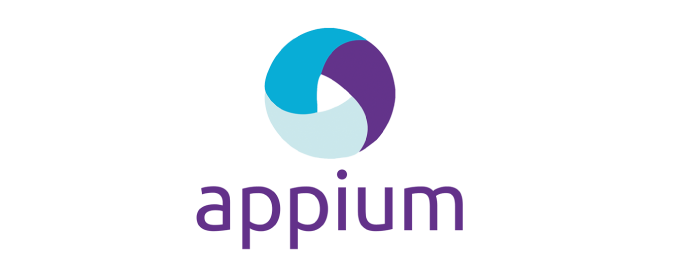The Best Automation Testing Tools: What are they and why are they growing so popular?
Well, reports show that manual testing is one of the most time-consuming steps in the testing cycle. That’s why development teams have resorted to testing automation.
The practice is so popular that automated testing tools have replaced 50% of manual testing. Many other companies want to move to test automation tools.
However, it is seen that more than 26% of companies have difficulty finding the right tools for test automation.
If you are one of these, this blog is for you. We shall be going through some of the best automation testing tools in 2025.
What are Automation Testing Tools?

Before we look at automated testing tools for web applications and apps, let’s first discuss what the best automation testing tools are.
As the name suggests, these are software or frameworks that enable the automation of test case execution and outcome validation.
Automation testing tools are software applications or frameworks that are used to automate the execution of test cases and the validation of expected outcomes, in short, they automate mobile app testing.
Here’s how these tools do it. This will help with features like test case creation, test script development, test execution, and result reporting tools to streamline the process.
Thus, delivering improved efficiency and ensuring the reliability and accuracy of the solution. This is why automation testing tools are growing so popular among users.
Speaking of which, let’s look at the trends in automation testing in the next section.
What are the Trends for Automation Testing Tools in 2025?

Let’s look at some of the top automation testing trends for 2025. These are, as mentioned below:
Shift-Left Testing
The first one on our list is shifted left testing. What happens here is that automation testing will be integrated into the early stages of development, such as unit testing and continuous integration, to identify and fix issues sooner.
With the growing popularity, this trending activity earlier in the software development lifecycle is likely to continue.
Codeless Testing
Well, well, with the help of newer technology more and more codeless, no-code, or even low-code platforms are growing popular.
With this, the demand for codeless or low-code automation testing tools is likely to rise.
These tools allow testers and subject matter experts without programming knowledge to create and execute tests using visual interfaces or natural language. Thus, reducing reliance on scripting and technical expertise.
Intelligent Test Automation
With everything from smartphones to AI chatbots becoming intelligent, it’s time to bring intelligence to testing.
Based on AI and machine learning technologies in automation testing, intelligent test automation takes things to the next level.
Intelligent test automation tools can analyze test data, identify patterns, and suggest improvements, making the testing process more efficient and effective.
And that’s something that every app developer can benefit from.
Mobile and Cross-Platform Testing
Automation testing tools will need to provide robust support for testing mobile apps across various devices, operating systems, and screen sizes.
As you see, the focus on mobile and cross-platform testing will continue with the increasing popularity of mobile applications and cross-platform app platforms.
Test Automation in Agile and DevOps Environments
Agile and DevOps methodologies will continue to gain prominence. Since they emphasize faster development cycles and continuous delivery.
Automation testing tools will play a crucial role in these environments, enabling faster feedback and supporting continuous integration and continuous testing practices.
Cloud-Based Testing
We can all agree on the fact that the use and popularity of Cloud platforms is rising.
As such, the adoption of cloud-based testing infrastructure and services is expected to grow even further.
Cloud platforms offer scalability, cost-effectiveness, and easy access to testing resources, allowing teams to perform distributed testing, and parallel test execution, and facilitate collaboration.
These are some of the trends in automation testing that give you a glimpse into the world of automation testing tools. With that said, let’s look at some of the best testing tools in the next section of the blog.
10 Best Automation Testing Tools
Automation testing tools are trending on their own.
Therefore, there are a lot of people who are looking for the best test automation tools. If you are one of them, you have got yourself covered.
In this section, we shall be going through the top 10 best automation testing tools with their pricing and features.
Let’s start with:
1. testRigor – #1 Generative AI-based Test Automation Tool
testRigor is an innovative automation testing tool designed for teams looking to accelerate their testing processes without requiring extensive coding knowledge.
Using plain English to create end-to-end tests, testRigor reduces maintenance efforts while enhancing test reliability, making it ideal for web, mobile, and API testing.
Features:
- Codeless Test Creation: Build complex test cases in plain English, accessible to both technical and non-technical users.
- Cross-Platform Support: Seamlessly test web, mobile, and desktop applications across various devices and environments.
- AI-Powered Maintenance: Automatically adapts to UI changes, significantly reducing test flakiness and maintenance overhead.
Pricing: Available Plans: Free – Public, Private (from $300/month), Private Complete (from $900/month), and Custom Pricing.
2. Selenium – Widely Known Automation Testing Tool

The first automation testing tool on our list is Selenium.
Widely used, this open-source automation testing framework comes with a plethora of tools and libraries. This platform is mainly based on web app testing.
What makes this platform stand out from the rest is its ability to interact with web elements and perform several actions. It also allows distributed testing across multiple machines and browsers.
To make it easier for everyone to use, the platform is compatible with the following programming languages: Java, C#, Python, Ruby, and more.
Moving on, let’s look at the features of the platform and pricing.
Features:
- Cross-browser and cross-platform testing
- Supports multiple programming languages
- Integrate with different testing frameworks and tools
Pricing: Free and open-source
3. Appium – Open Source Automation Testing Tool

Let’s discuss yet another open-source mobile automation testing tool. But unlike the previous one, it enables developers to test native, hybrid, and mobile web applications.
Moreover, the platform also proves a consistent API. With this API, you can automate apps built for iOS, Android, and Windows.
Being a popular name in the world of testing tools, Appium is integration-enabled. Thus, you can use it with Selenium WebDriver and support multiple programming languages, including Java, JavaScript, Ruby, Python, and more.
Features:
- Supports native, hybrid, and mobile web applications
- Cross-platform testing
- Multiple programming language support
Pricing: Free and open-source
4. TestComplete – Testing Automation Tool From SmartBear

Coming from SmartBear, TestComplete is a comprehensive automation testing tool.
Built to support all kinds of testing, you can use it to test web solutions, desktop apps, as well as mobile applications.
Here, you can find some of the most amazing features (as mentioned below) as well as script editing with multiple scripting languages (JavaScript, VBScript, Python, etc.).
Plus, you also get seamless integration with CI/CD tools.
Features:
- Web, desktop, and mobile application testing
- Recording and playback
- Keyword-driven testing
- Distributed testing
Pricing: Commercial licenses (pricing available on request)
5. JUnit – Automation Testing Tools For Java

JUnit is a widely used unit testing framework for Java applications and one of the best test automation tools on the list.
It provides annotations for defining test cases, assertions for validating results, test fixtures for setup and teardown, and test runners for executing tests.
The platform JUnit is designed to support test-driven development (TDD) and continuous integration.
Features:
- Unit testing framework for Java applications
- Test case annotations and assertions
- Test execution and reporting
Pricing: Free and open-source
6. Cucumber – Behaviour-Driven Development Tool

Cucumber is not exactly a platform restricted to automated tools for software testing.
Rather, it is a popular behavior-driven development (BDD) tool that enables collaboration between developers, testers, and business stakeholders.
Cucumber allows developers to write test scenarios in a human-readable format using Gherkin syntax. To make it better, the platform supports integration with various programming languages and testing frameworks.
Features:
- Behavior-driven development (BDD) tools
- Human-readable test specifications
- Integration with various programming languages and frameworks
Pricing: Free and open-source
7. Ranorex

Ranorex is a comprehensive automation testing tool that supports web, desktop, and mobile application testing.
It offers a user-friendly GUI for test development, record and playback functionality, codeless testing, data-driven testing, and keyword-driven testing.
Ranorex also provides robust reporting capabilities, test debugging tools, and integration with CI/CD systems.
Features:
- Web, desktop, and mobile application testing
- User-friendly interface
- Recording and playback
- Data-driven and keyword-driven testing
Pricing: Commercial licenses (pricing available on request)
8. Katalon Studio – All-in-One Automation Testing Tools

Looking for one place solution for all your test automation needs? Well, let us introduce you to Katalon Studio automation testing tool.
Focused on testing web and mobile applications, it comes with a range of amazing features. In addition to this, it is also quite compatible with languages like Java, Groovy, JavaScript, etc.
This is a leading automation testing tool that you should check out.
Features:
- Web and mobile application testing
- Recording and playback
- Scripting in multiple languages
- Built-in test reporting
- Integration with CI/CD tools
Pricing: Free and commercial licenses (pricing available on their website)
9. TestNG – Testing Framework For Java

This is yet another testing framework for Java applications.
But it goes way beyond the scope of the unit with its advanced testing capacities. To name a few, it supports parallel test execution and test configuration through XML files, among other things.
TestNG itself is very flexible. The best part is, that it’s super easy to integrate with other testing tools and development frameworks.
Features:
- Testing framework for Java applications
- Parallel test execution
- Test configuration through XML files
- Data-driven testing
- Test reporting
Pricing: Free and open-source
10. LoadRunner – Automation Testing Tool For Performance Testing

LoadRunner is a performance automation testing tool by Micro Focus that helps simulate real user loads on applications. It supports various protocols like HTTP, WebSockets, Citrix, SAP, and more.
LoadRunner provides load testing, stress testing, and performance monitoring capabilities.
Moreover, it allows for creating and executing realistic test scenarios, analyzing system performance, and other things. Take a look at the other features mentioned below:
Features:
- Performance testing tool
- Supports various protocols
- Load testing, stress testing, and performance monitoring
- Detailed test reports
Pricing: Commercial licenses (pricing available on request)
11. Postman – API testing Tool

Let us introduce you to Postman, an automation testing tool.
It is a popular API testing and collaboration platform. Known for allowing developers and testers to send requests to APIs, validate responses, and automate API testing workflows.
Postman provides a user-friendly interface for creating and organizing requests, supporting test scripting, and other features as shown below.
This is a top and one of the best test automation tools.
Features:
- API testing and collaboration platform
- API request and response validation
- Test Scripting
- Request and response mocking
- Team collaboration
Pricing: Free and commercial licenses (pricing available on their website)
Conclusion
As such, these are the best automation testing tools on the market as of 2025. By using these tools, you can save a lot of time and money while also improving the results. Therefore, you should consider using these tools. And with that, we have come to the end of our blog.
FAQ
The top 10 automated testing tools for 2025 are Selenium, Appium, TestComplete, JUnit, Cucumber, Ranorex, Katalon Studio, TestNG, LoadRunner, and Postman.
Features of these automated testing tools vary, but commonly include cross-browser and cross-platform testing, record and playback functionality, support for various programming languages, data-driven and keyword-driven testing, integration with CI/CD tools, and robust reporting capabilities.
The pricing models for these automation testing tools differ. Some tools like Selenium, Appium, JUnit, Cucumber, and TestNG are open-source and available for free, while others like TestComplete, Ranorex, Katalon Studio, LoadRunner, and Postman offer both free and commercial licenses. Specific pricing details can be obtained from their respective websites.
Yes, many of these automation testing tools, such as Selenium, Appium, TestComplete, Ranorex, and Katalon Studio, support testing for web, mobile, and desktop applications.
While trends can evolve, some potential trends in automation testing for 2025 may include a shift-left testing approach, intelligent test automation with AI and machine learning, codeless testing, mobile and cross-platform testing, cloud-based testing, integration with DevOps and CI/CD pipelines, and a focus on test data management.
Choosing the right automation testing tool depends on several factors such as project requirements, application type, programming language preferences, ease of use, available resources, and budget. It’s advisable to evaluate the features, compatibility, community support, and scalability of the tools before making a decision.
Yes, there are several other automation testing tools available in the market apart from the ones mentioned. Some alternatives include QTP/UFT, Robot Framework, Telerik Test Studio, Apache JMeter, SoapUI, and more. It’s important to explore and assess different tools based on your specific needs.

Niketan Sharma is the CTO of Nimble AppGenie, a prominent website and mobile app development company in the USA that is delivering excellence with a commitment to boosting business growth & maximizing customer satisfaction. He is a highly motivated individual who helps SMEs and startups grow in this dynamic market with the latest technology and innovation.
Table of Contents




No Comments
Comments are closed.